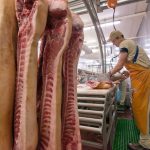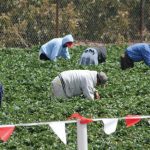Job vacancies in food and beverage manufacturing fell to 2019 levels this year, but softening demand for workers isn’t necessarily a positive sign says Farm Credit Canada.




Agriculture wages lag behind fields like construction, manufacturing, transport; jobs may lack basic benefits

Food processing sees foreign worker limit reduced by ten per cent; construction, healthcare exempted

National testing centre is needed to onboard internationally-trained vets, CVMA says

The labour issues in the sector didn’t pop up overnight

Agriculture and Agri-Food Canada got comments from agriculture, food and labour groups about workforce challenges



Producers are struggling to find workers -- and so is everyone else